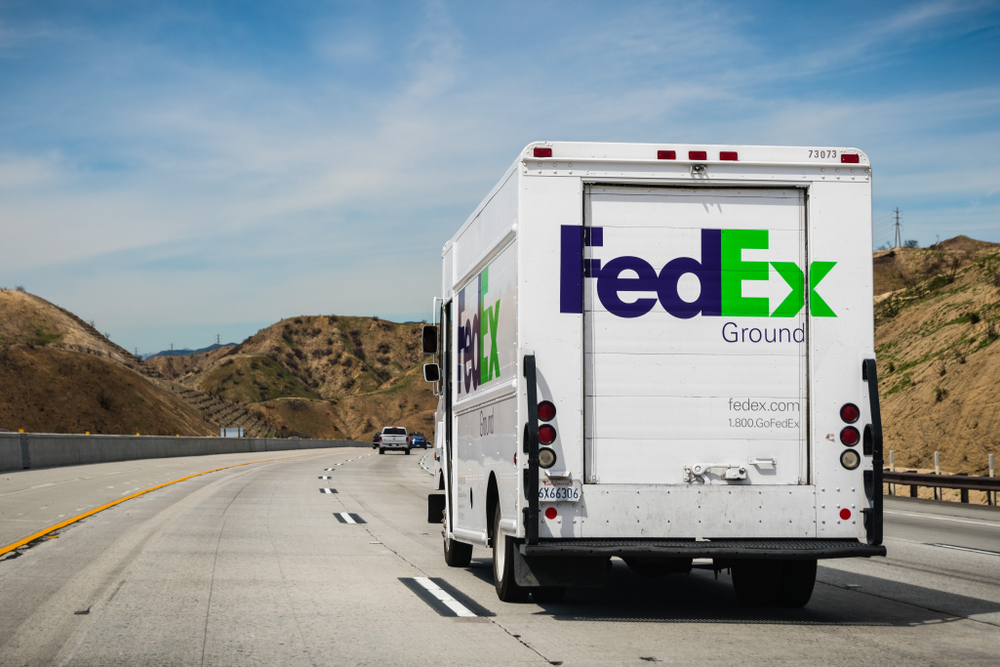For e-commerce shippers caught up in the growing tensions between Amazon and FedEx, investing in the right 3PL can provide the expertise needed to navigate market uncertainty.
With e-commerce sales poised to surpass $740 billion by 2023, it’s no secret to e-commerce stakeholders that friction between Amazon and FedEx is growing. However, exactly how this friction will manifest going forward isn’t yet settled business. Amazon and FedEx have each instituted bans of sorts on each other over the past year — disputes which have unnecessarily put online businesses in their crosshairs. What this ongoing back-and-forth between Amazon and FedEx means for e-commerce shippers is unclear.
For example, FedEx announced that it would not renew its FedEx Express US domestic contract with the online marketplace this past summer. And, in December, Amazon stated that it would block third-party sellers from using FedEx’s Ground delivery for Amazon Prime parcels. However, Amazon recently lifted that ban just weeks after instituting it during the busiest online shopping period of the year.
For online businesses that depend on reliable, cost-effective shipping, service disruptions caused by repeated disagreements between Amazon and FedEx can be difficult. What’s more, updating supply chains to account for these bans only to have them reversed a few weeks later can be wasteful for small and mid-sized businesses working to find their footing in an increasingly competitive space. By working with trusted third-party logistics partners (3PLs) like Primary Logistics, however, e-commerce merchants rely on a tried-and-tested logistics network to get the job done without the fuss of Amazon and FedEx’s rivalry.
Growing Logistics Friction Between Amazon and FedEx
As Amazon and FedEx, each invest more heavily in their e-commerce logistics infrastructure, the series of bans they’ve announced take on greater and greater import. For example, Amazon’s recent ban on third-party sellers working with FedEx’s ground delivery service for Amazon Prime packages came at a critical time of year. Amazon had announced that FedEx ground delivery was not meeting fulfillments thresholds required under Prime, abruptly barring its use during the height of the holiday season.
Surprisingly, Amazon lifted the ban right after the holiday season had ended, explaining that FedEx ground once again met the criteria necessary for Amazon Prime deliveries. While the move is a positive development for e-commerce sellers who work with both Amazon and FedEx, the disruption during the height of the holiday season affected supply chains, logistics partnerships, and more. What’s more, sellers that may have spent valuable time updating their shipping operation are now faced with the question of whether or not to revert back to the status quo.
What This Means for E-Commerce Shippers
For small and mid-sized businesses trying to carve out a niche in the e-commerce space, fulfilling orders in a timely and cost-effective manner is a must — especially when it comes to building customer loyalty. Disruptions in the shipping process are one of the fastest ways to lose online businesses, with 69% of consumers saying that they are less likely to shop with an e-retailer in the future if a past order was delivered late.
Given that, the back-and-forth bans from Amazon and FedEx jeopardize supply chain reliability and ongoing fulfillment operations. Rather than invest in the stability of 3PLs with professional expertise navigating the logistics market like Primary Logistics, businesses that work exclusively with these e-commerce and logistics giants risks putting their reputation with customers in the middle of growing friction between Amazon and FedEx.
Investing in the Right 3PL for Your Business
While larger enterprises may have the resources to coordinate their e-commerce logistics operation on their own, it can be difficult for SMBs to do the same without expending precious capital. However, this doesn’t mean that these online merchants should submit themselves to the unpredictability of Amazon and FedEx’s confrontations. By working with a 3PL like Primary Logistics, online merchants can tap into existing logistics infrastructure while building a reliable relationship with an experienced family-owned business.
Indeed, with a track record of excellence in domestic and international logistics, Primary Logistics is strategically positioned to help e-commerce shippers thrive in the developing online landscape. Our team of award-winning logistics experts can work with your business to navigate Amazon’s shipping requirements — as well as your own — in order to fulfill your customers’ order, build client loyalty, and lay a solid foundation for e-commerce success going forward.
If you’d like to learn more about how award-winning shipping and logistics services from Primary Logistics and Primary Freight, contact us today at (800)-635-0013.
